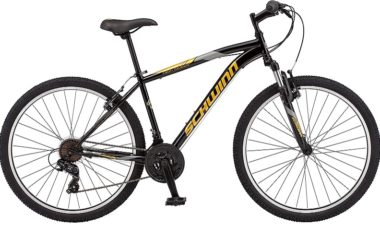Table of Contents
Introduction
“How many calories should I burn in a workout?”
It is one of the most common questions I get as a personal trainer. When someone asks this question, they might think about how many calories they’ll burn at their next workout or how many calories they burn during a long nap. Of course, the number of calories burned depends on many factors, including your gender, body fat percentage, and lean muscle mass. The best number of calories to burn during each workout can be determined by some general guidelines.
Can cardio burn belly fat?
Cardio is an excellent way to boost your metabolism and burn fat. You can lose more weight with cardio than with resistance training. However, cardio isn’t good for building muscle.
Cardio is best for burning belly fat because it keeps your heart rate high during the workout. Cardio also helps improve blood flow to your muscles, making them work harder during each session of strength training. Muscles require more energy (calories) than fat does. So when you have more muscle mass and fewer calories coming in than going out, it’s easier to burn off body fat.
Burning belly fat isn’t just about losing weight. It’s also about improving overall health by reducing risk factors such as diabetes and high blood pressure. Regular exercise makes people happier than those who do not exercise at all. And this can help decrease stress levels.
The amount of calories you burn in your workout depends on various factors. How fast and intensely you exercise, how heavy your workout equipment is and the time it takes to do the activity. The duration of your workout can also have an impact. Shorter workouts tend to burn fewer calories than longer ones.

What is the ideal length of time for working out?
The ideal length of time for working out depends on your fitness level and goals. For example, you might want to start with a 30-minute workout if you’re starting. After that, you can increase the duration of your workouts as your body becomes more conditioned.
Your body can burn calories at a set rate called your basal metabolic rate (BMR). Your BMR is the number of calories you burn when you’re at rest and just breathing. If you have more muscle mass, your BMR will be higher.
A good rule of thumb is to aim for at least 30 minutes of exercise every day. It can break this up into three 10-minute sessions or six 15-minute sessions.
If you’re trying to lose weight fast, interval training is an optimal way to burn calories while still making progress in strength and endurance training. You’ll get all this done in less than 30 minutes!
Recently, fitness experts have become increasingly interested in the topic of how many calories you burn during a workout. It is now known that a variety of factors affect how many calories you are burning during any given workout.
Factors affecting calorie burn
A calorie is a unit of measure for the energy value in food. While the above question is not strictly correct, it does have a point. Cardio does help you lose weight. But the process is more complicated than just burning calories. For example, if your diet contains excess calories.
Any additional activity will not burn off the fat from that extra calorie intake. Your body will be running off its energy stores! What’s more, some forms of cardio such as cycling do not work all your muscles so no matter how much you do it. You won’t necessarily lose weight everywhere.
The intensity of your workout is a big factor in how many calories you burn. Here are some other things to keep in mind:
- Duration: The longer you exercise, the more calories you’ll burn. So if you can go for an hour, great! But if your boss is calling and there’s an important meeting in 15 minutes? Don’t worry, you’ll still get some good calorie-burning results by squeezing in short bursts of activity throughout the day (think: walking across the office when phone calls have slowed down).
- Bodyweight vs. body composition: Larger people tend to burn more calories than smaller ones during physical activity because they have more muscle mass. A muscle cell requires energy at rest to contract quickly when required by exercise or daily activities such as standing up from sitting down.
The number of calories a person burns in a workout depends on their weight and the intensity of their workout. If you weigh 150 pounds and have a target heart rate of 130-140 beats per minute.
You will burn approximately 150-185 calories in approximately 30 minutes. However, it is important to not just take this number as gospel, as other factors affect the calories you burn during exercise.
In 30 minutes, how many calories do you burn?
How Many Calories Do You Burn in 30 Minutes of Cardio? The amount of calories you burn during exercise depends on a lot of factors. These include your general fitness level, age, gender, and weight. It also varies depending on the intensity, duration, and type of exercise you do as well as your heart rate.
The number of calories burned in a workout depends on the intensity of your exercise and how long you’re engaged in it. The more intense your workout, the more calories you’ll burn.
In 30 minutes, you can burn anywhere between 100 and 250 calories (on average). The amount also depends on age, gender and weight. So if two people have similar BMIs but different body compositions (i.e., one has more muscle than fat). They won’t burn the same amount of energy during exercise.
Burning calories during a workout is an important component of weight loss and weight maintenance. Although many variables affect a person’s calorie burn in 30 minutes of exercise, for example, amount of muscle mass, height, and weight. Keeping track of your exercise routine can help you to understand how many calories you burn in a workout based on intensity level, body type, and duration of exercise.
Your BMI is calculated by dividing your weight in kilograms by your height in meters squared. For example, someone who weighs 120 pounds and is 5’4″ tall would have a BMI of 24.96 (120 divided by 3968). Because many variables go into calculating how much energy we expend during activities like walking or running. Like our age, gender, and fitness level. There’s no single way to calculate this number accurately for every person.
however, it can usually be used as an estimate to roughly determine whether or not what we’re doing is enough to get us closer to our goals (and keep us from feeling guilty about eating too much ice cream afterward).
A lot of people want to know how many calories they burn, and how many they should be burning. The ideal length of time of a cardio workout depends on two things: intensity level and body mass. If you weigh more, you’ll burn more calories in a 30-minute workout than someone who weighs less.
But the intensity level will also matter because the harder you work out, the higher your heart rate will be and therefore the more calories burned. Your body burns calories faster when it’s at rest than when it’s working hard because your muscles have to work extra hard to move around heavyweights.
What is the best way to lose one pound per day?
The best way to lose one pound per day is to eat less and burn more calories. It does not mean that you should starve yourself, but rather that you should ensure that the amount of calories consumed each day is less than what your body needs for its daily functions.
Your body stores excess calories as fat instead of burning them off as energy. To maintain a healthy weight, it’s important to consume food with a certain number of calories while also staying active enough to burn those same calories each day.
In the case of calories in vs. calories out, both sides of the formula must be balanced to work effectively. Eating too much or exercising too little can cause weight gain or loss. For example, suppose an individual eats 3200 calories per day but only burns 2800 through exercise and other activities (like walking). In that case, their weight will increase over time because there are more than enough extra “leftover” calories stored as fat cells throughout the body (which usually begin around our midsection).
On the other hand, if an individual eats only 2000-2100 daily but exercises enough, they burn 2500-2600 daily (roughly about 60 minutes of cardio exercise 5 days/week). Their metabolic rate will be higher than normal due to the additional energy used during physical activity, which helps keep them at their desired weight level by burning excess fat accumulated from previous overeating events.”
Conclusion
Your calorie burn depends on your weight, body composition, fitness level, and exercise intensity. To lose one pound in a day, you need to burn 3500 calories. For example, if you want to lose 2 pounds per week, you need to burn 1000 calories a day, more than what you take in.
So the best way would be to combine cardio with some resistance training for best results. We all want the best results in the gym. We want to get better with every workout and see our bodies change. The single most important factor that determines your workout result is how many calories you burn during each one. If you want to be able to see the difference in just 30 minutes









